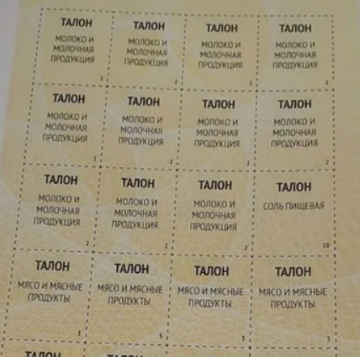The time has come again – in the Kaliningrad region and Kamchatka in Russia, food cards and special vouchers for inexpensive products are already in effect for low-income Russians.
Subscribe to our Viber: news, humor, and entertainment!
SubscribeConditionally wealthy individuals will not be able to access such "privileges" in the future.
This was stated by economist Maxim Blunt in an interview with one of the Ukrainian TV channels.

The expert added that if the authorities of the aggressor country attempt to halt price increases, products will simply disappear from the shelves. Meanwhile, the Russian statistics agency will present this under the "tasty sauce" of reduced inflation.
Currently popular articles Almost 7 UAH per kilowatt: Ukrainians informed of the date for the increase in electricity tariffs Recalculation of utility tariffs from January 1: which bills will change Courts have gained more power: the new law will hit debtors, prepare 121 thousand hryvnias In Ukraine, applications are being accepted for new financial assistance: who can receive more than 11 thousand hryvnias Show more
Russia returns to vouchers and food cards
According to the economist, food cards have already been announced in the Kaliningrad region of Russia. Meanwhile, in Kamchatka, special vouchers for cheap fish have been introduced, supposedly for low-income citizens. There, Russians will be able to buy fish for 400 rubles per kilogram.
"In 2025, food cards will likely not be available to everyone. The conditionally wealthy will 'pay for all the sins' of Gazprom, Vladimir Putin, Andrey Belousov, etc. Low-income individuals will be able to receive a minimal set of products at social prices," he noted.
Blunt pointed out that if the population of the aggressor country continues to buy products with their own money, prices will only rise. Once Russian authorities manage to stop price increases, inexpensive products will vanish from store shelves.
"However, the Russian statistics agency will be able to show good results in reducing inflation, as it will focus specifically on the social prices of products, which theoretically exist somewhere. The fact that they are not on the shelves will not concern anyone, but 'the stores will be sad'," the economist added.